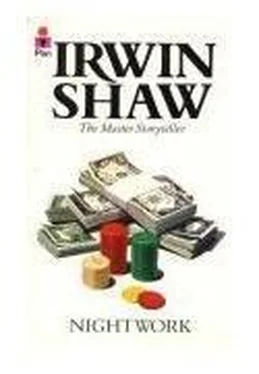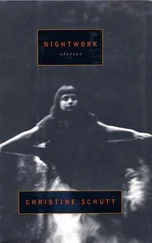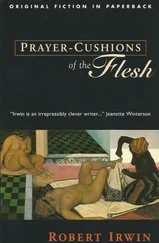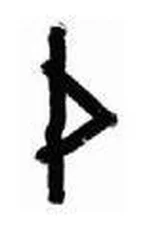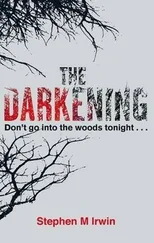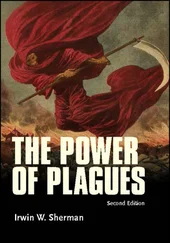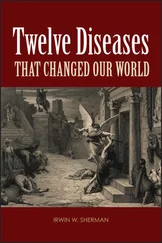Irwin Shaw - Nightwork
Здесь есть возможность читать онлайн «Irwin Shaw - Nightwork» весь текст электронной книги совершенно бесплатно (целиком полную версию без сокращений). В некоторых случаях можно слушать аудио, скачать через торрент в формате fb2 и присутствует краткое содержание. Жанр: Детектив, на английском языке. Описание произведения, (предисловие) а так же отзывы посетителей доступны на портале библиотеки ЛибКат.
- Название:Nightwork
- Автор:
- Жанр:
- Год:неизвестен
- ISBN:нет данных
- Рейтинг книги:3 / 5. Голосов: 1
-
Избранное:Добавить в избранное
- Отзывы:
-
Ваша оценка:
- 60
- 1
- 2
- 3
- 4
- 5
Nightwork: краткое содержание, описание и аннотация
Предлагаем к чтению аннотацию, описание, краткое содержание или предисловие (зависит от того, что написал сам автор книги «Nightwork»). Если вы не нашли необходимую информацию о книге — напишите в комментариях, мы постараемся отыскать её.
Nightwork — читать онлайн бесплатно полную книгу (весь текст) целиком
Ниже представлен текст книги, разбитый по страницам. Система сохранения места последней прочитанной страницы, позволяет с удобством читать онлайн бесплатно книгу «Nightwork», без необходимости каждый раз заново искать на чём Вы остановились. Поставьте закладку, и сможете в любой момент перейти на страницу, на которой закончили чтение.
Интервал:
Закладка:
“Sure.”
“I’ll have the money ready for you. In cash. I’ll call you at your office Tuesday and tell you where to meet me.”
“In cash?” Henry looked puzzled. “What’s the matter with a check? I hate to carry that much cash around with me.”
“You’ll just have to bear the burden,” I said. “I don’t write checks.” I could see his face working. He wanted the money – badly, badly – but he was an honest man and no fool and there was no doubt in his mind that whatever else the money was, it wasn’t honest. “Doug,” he said, “I don’t want you to get into trouble on my account. If it means…” He was pushing himself and I appreciated what it cost him. “Well, I’d rather do without it.”
“Let me handle my end,” I said curtly. “You handle yours. Just be in your office Tuesday morning for my call.”
He sighed, an old man’s resigned, weary sigh, honesty too difficult a position to maintain. “Baby brother,” was all he said.
I was glad to get out of Scranton and back on the icy road to Washington. At the wheel, I thought of the poker game that night and touched the silver dollar in my pocket.
I was stopped for speeding in Maryland, where the ice ran out, and bribed the cop with a fifty-dollar bill. Mr. Perris, or whatever his name really was, was spreading the wealth all through the American economy.
7
It was late in the afternoon when I arrived in Washington. The monuments to Presidents, generals, justice, and law, all the ambiguous Doric-American pantheon, were wavery in a soft, twilight Southern mist. Scranton could have been in another climate zone, another country, a distant civilization. The streets were almost empty, and the few people walking there in the quiet dusk moved slowly, peacefully. Jeremy Hale had said Washington was at its best on weekends, when the mills of government ground to a halt. In the capital, between Friday afternoon and Monday morning, it was possible to believe in the value and decorum of democracy. I wondered idly what the blonde lady whose taxicab I had shared was doing with her holiday.
There was no message for me at the desk of the hotel, and, when I went up to my room, I called Hale at his home. A child answered, her voice bell-like and pure, and I had a sudden, unexpected moment of jealousy because there was no child to answer for me and to call, with uncomplicated love, “Daddy, it’s for you.”
“Is the game still on?” I asked Hale.
“Good,” Hale said. “You got back. I’ll pick you up at eight.”
It was only five o’clock and I played with the idea of calling Evelyn Coates’ number to see which one of the ladies was at home. But then what would I say? “Listen, I have two hours to spare.” I was not that sort of a man and never would be. So much the worse for me.
I shaved and took a long hot bath. Lying there, luxuriously steaming myself, I counted my blessings. They were not insignificant. “Peter Piper picked a peck of pickled peppers,” I said aloud in the clouded bathroom. I hadn’t stuttered once in five days and nights. In a minor way it was like being able to throw down your crutches and stride away from the spring at Lourdes. Then there was the money in the vault in New York, of course. Again and again, I found myself thinking of it, the neat stacks of bills lying in the steel box, laden with infinite promise. The twenty-five thousand dollars I was going to give Hank was a small price to pay for freeing me from the guilt about my brother that had lain somewhere in my subconscious for so many years. And Evelyn Coates … Old man, I thought, remembering the flaccid body in the corridor, you have not died in vain.
I got out of the bath, feeling fit and rested, put on some fresh clothes and went down and had a leisurely dinner by myself, without liquor. Not before a poker game.
I made sure I had the silver dollar in my pocket when Hale came to get me. If there ever was a gambler, dead or alive, who was not superstitious, I haven’t heard of him.
Silver dollar or no silver dollar, Hale nearly got us killed driving to the hotel in Georgetown, where the weekly poker game was played. He went through a stop sign without looking and there was a wild screech of brakes as a Pontiac swerved to avoid hitting us. From the Pontiac somebody screamed, incomprehensibly, “Goddamn niggers.”
Hale had been a careful driver in college. “Sorry,” he said. “People drive like maniacs on Saturday night.” If gambling did that to me, I thought, I wouldn’t play. But I didn’t say anything.
There was a big round table covered by a green cloth set up in one of the small private dining rooms of the hotel, and an array of bottles, ice, and glasses on a sideboard, all under a strong light. Very professional. I looked forward to the evening. There were three other men already in the room and one woman, standing with her back to the door fixing herself a drink as we came in. Hale introduced me to the men first. I found out later that one of them was a well-known columnist, one a congressman from upstate New York, who looked like Warren Gamaliel Harding, white-haired, benign, falsely presidential. The last player was a youngish lawyer by the name of Benson who worked at the Department of Defense. I had never met a columnist or a congressman before. Was I going up or down on the social scale?
When the woman turned around to greet us, I saw that it was Evelyn Coates. Somehow, I wasn’t surprised. “Yes,” she said, without smiling, as Hale started to introduce us. “I know Mr. Grimes. I believe I met him at a party the other night at your house, Jerry.”
“Of course,” Hale said. “I must be losing my mind.” He did seem distracted. I noticed that he kept rubbing the side of his jaw with the palm of his hand, as though he had an intermittent itch there. I made a small bet with myself that he would wind up losing that night.
Evelyn Coates was dressed in dark blue slacks, not too close-fitting, and a loose beige sweater. Working clothes. I thought. Dyke? I dismissed the idea. Probably when she was younger she was one of those girls who played touch football with the boys on the block. I wondered if her room-mate had told her about me.
She was the only one in the room who had a drink in her hand as we sat down at the table and started counting our chips. She piled her chips expertly, her long hands deft, pale fingers, pale polished nails.
“Evelyn,” Benson said as the congressman began to throw cards for the first ace to deal, “tonight you must be merciful.” “Without fear or favor,” she said.
The lawyer, I noticed, seemed to have a special, teasing relationship with her. I put it out of my mind. I didn’t like his voice either, round and self-satisfied. I put that out of my mind, too. I was there to play cards.
Everybody took the game very seriously, and there was almost no conversation except for the usual postmortems between hands. Hale had told me the game was a moderate one. Nobody had ever lost more than a thousand dollars on any one night, he said. If he hadn’t been married to a rich wife, I doubt that he would have called it moderate.
Evelyn Coates was a tricky player, unpredictable and hard-nosed. She won the second biggest pot of the night on a pair of eights. In other days you would have said she played like a man. Her expression was the same whether she won or lost, cool and businesslike. It was hard for me to remember, as I faced her across the table, that I had ever been in her bed.
I won the biggest pot of the night on a low straight. I had never had as much money to back me up in any of the games I had been in before, but, as far as I could tell, I played as I always did. My new-found fortune wasn’t reflected in my betting. I folded early a good deal of the time.
Читать дальшеИнтервал:
Закладка:
Похожие книги на «Nightwork»
Представляем Вашему вниманию похожие книги на «Nightwork» списком для выбора. Мы отобрали схожую по названию и смыслу литературу в надежде предоставить читателям больше вариантов отыскать новые, интересные, ещё непрочитанные произведения.
Обсуждение, отзывы о книге «Nightwork» и просто собственные мнения читателей. Оставьте ваши комментарии, напишите, что Вы думаете о произведении, его смысле или главных героях. Укажите что конкретно понравилось, а что нет, и почему Вы так считаете.
